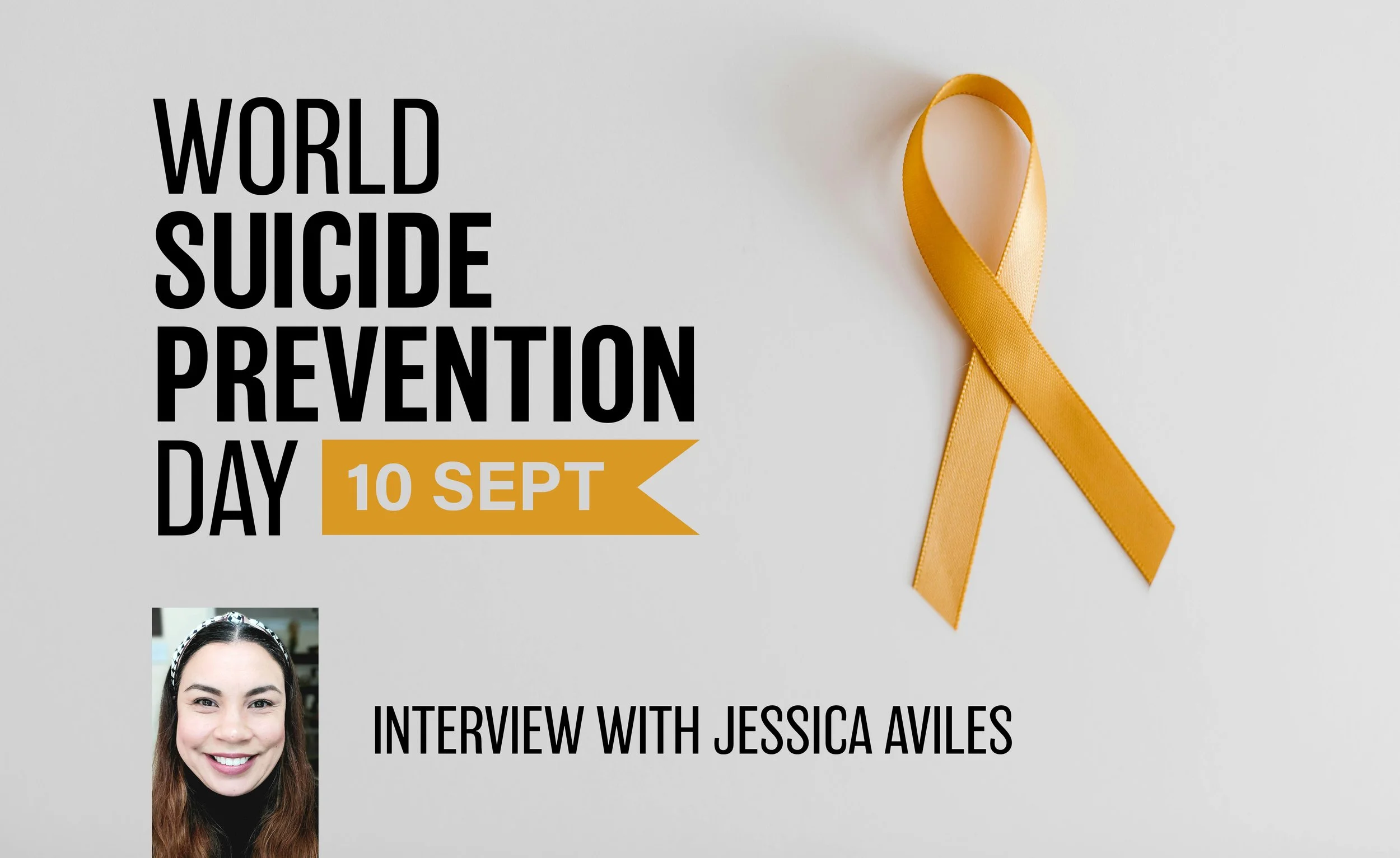Interview: PSG’s Approach to Suicide Prevention
For World Suicide Prevention Day, we spoke with Jessica Aviles, Chief Clinical Officer at Positive Support Group (PSG), who has been central to developing our Suicide Prevention model. In this interview, Jessica explains the two ways PSG is supporting people at risk, how Positive Behaviour Support (PBS) underpins the approach, and why this work is so urgently needed.
Q: PSG works on suicide prevention in different ways. Could you start by telling us about the training you deliver?
Jessica: Our suicide prevention training is designed to give professionals and carers the confidence to have open, supportive conversations about suicide and self-harm. We focus on recognising warning signs, understanding how trauma and neurodivergence – such as autism can shape someone’s experience, and using practical tools to reduce immediate risk.
It’s very interactive. We use real-life scenarios, role play, and reflective practice so that people leave not just more knowledgeable, but confident to apply what they’ve learned.
Q: Who usually takes part in this training?
Jessica: It’s designed for professionals who already support people with complex needs – for example, staff in supported living services, placement providers, social workers, and managerial teams. We also train teams who then cascade the learning to others in their organisations.
Q: And how about the suicide prevention service pathway – what does that involve?
Jessica: That’s where PSG works directly with children and young people experiencing suicidal thoughts, self-harm, or who have made attempts. Referrals usually come through health and social care contracts.
Our approach recognises that suicide prevention works best when the whole network is supported. So, alongside the individual, we also work with parents, carers, and professionals. While crises often bring us in, we don’t just focus on risk. We also help build resilience, develop coping strategies, and support families to feel stronger and more capable long after PSG’s involvement.
Q: What do you feel makes PSG’s approach unique?
Jessica: We use evidence-based tools like crisis response plans, but what makes our model distinct is how it integrates Positive Behaviour Support (PBS). PBS is holistic and person-centred, and it’s all about improving quality of life.
So much of suicide prevention – finding reasons for living, building coping strategies, strengthening support systems – aligns naturally with PBS. That’s why our approach works particularly well for autistic young people and those with learning disabilities, who are often overlooked in mainstream suicide prevention.
Q: Looking more broadly, how do you see the current level of support for autistic young people at risk of suicide?
Jessica: Rates of self-harm and suicide risk among autistic young people have risen significantly in recent years. There has been more focus on support in the last three to four years, but services remain stretched.
We still hear from parents who don’t know what to do, so they take their child to hospital or call the police. And many professionals say they don’t feel prepared to respond to suicide risk. That’s why this work feels so timely. Every professional and every carer who feels more equipped can make a real difference.
Q: Finally, what has it meant to you personally to be part of developing this work?
Jessica: Honestly, it’s been an honour. At the beginning, we were hearing from parents and professionals who often felt lost, unprepared, and powerless in the face of suicide risk. To now see the impact – young people finding hope, families feeling supported, and professionals growing in confidence has been incredible.
It shows that suicide is preventable – and that together, we really can save lives.

